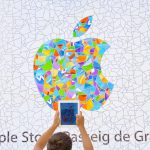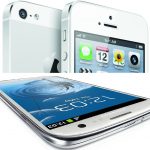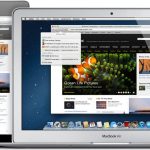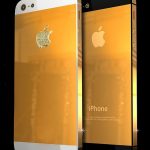Microsoft wants to become Apple, but can't

Microsoft has a long history of copying Apple. Back in the early 90s, Bill Gates' company introduced features found in the Macintosh GUI into Windows 2.0, sparking a copyright infringement lawsuit (Apple's taste for litigation is nothing new). Microsoft arguably has pilfered ideas from its rival's OS ever since -- Windows’ taskbar and Aero Peek certainly share clear similarities with OS X's Dock and Exposé. When the iPod became a massive hit, Microsoft introduced the Zune. Apple stores are hugely popular, which is why we’re now seeing Microsoft Stores popping up everywhere. Surface, in a way, copies the iPad, although of course Microsoft has tried (and failed) to popularize tablets since 2002.
And yes, before I go too far into this article, I’m aware the above paragraph could be seen as troll bait, so I’ll point out that Microsoft copies from other companies too -- Google being a major example -- and Apple, in turn, has lifted ideas from Microsoft, particularly from its operating system. Big companies copy from one another, it’s a fact of life. My point, however, is when Apple does something exceptionally well, Microsoft is keen to try and follow suit.
You can forget iPad mini

I did something quite shocking yesterday -- talk to my boss on the phone. Yes, we both occasionally get sentimental about such old-fashion communications. Among the topics: iPad mini, which is perennial rumor topic recently. Neither of us could quite fathom why or for what price a smaller Apple tablet makes sense. A new survey makes iPad mini all the more perplexing, and all the less a good idea.
According to an August TechBargains.com survey of 1,332 shoppers, 50 percent wouldn't buy iPad mini, while 45 percent would purchase iPhone 5. Meaningful context: The shopping comparison site conducted the survey before either product was announced, equally gauging sentiment based on rumors. Only 18 percent of respondents would buy the tablet. But that low number only hints at the deep level of disinterest.
Samsung brand perception rises, as Apple falls

They say the apple doesn't fall far from the tree. But it does.
Samsung's brand has recovered from a disastrous low, demonstrating the benefits of aggressive, compelling marketing and the pitfalls of a competitor's public product problems. Make no mistake: Samsung's snarky attack ads, which make fun of iPhone idolators, are as effective today as they were when first aired in November 2011. The perception change, which puts Apple's brand lower, also shows the damage done by iOS 6 Maps and dissatisfaction with the company's response.
Apple gives former MobileMe customers free cloud storage

Early Friday evening I received unexpected email from Apple, offering extra benefit as former MobileMe customer -- a year of extra online storage. Hey, that's 20GB, instead of 5GB. It's good marketing to those of us who paid $99 a year or more for MobileMe. Not that I benefit, being about five months into an Apple boycott.
Apple started transitioning MobileMe customers with iCloud's launch nearly a year ago. The older service officially closed on June 30, with the fruit-logo company offering existing customers extra storage during the transition.
Purple haze in photos from iPhone 5? You're holding it wrong

Apple tends to have unintentionally witty responses to most problems associated with the iPhone. Cofounder Steve Jobs told a user "you're holding it wrong" in response to "Death Grip". Now comes similar response to the purple haze in pictures taken with the iPhone 5.
Apple updated a knowledge base article in which it acknowledges the discoloration issue with the iPhone 5 camera, represented by a purple haze, flare or spot that appears due to the position of the light source. According to the Cupertino, Calif.-based corporation the problem isn't new and affects all iPhone generations.
Apple pays homage to Steve Jobs

Today marks one year since former Apple CEO Steve Jobs left this world, and in commemoration to its former leader and founder the Cupertino, Calif.-based corporation changed its front page, replacing it with a video detailing a few key moments from the man's life.
The black-and-white video slowly transitions the late Steve Jobs from one of his favorite Wayne Gretzky quotes to the iMac then to the more popular iPod and iPhone devices that have revolutionized the MP3 and smartphone market. The video ends in typical Steve Jobs fashion, delivering one of his powerful speeches.
Remembering Steve Jobs

Apple's cofounder died one year ago today, and there will be plenty of headlines looking back at him and how the company he left behind performed since. I decided that the best way to remember him is to move on. Jobs is gone. At GigaOM, Eric Ogg opines: "Why the tech industry needs to let Steve Jobs rest in peace". It's good advice, and much better than stories suggesting Jobs would fire CEO Tim Cook for the iOS 6 Mapocalypse or how he would have delayed iPhone 5, among others (I've seen them this week).
It's better to focus on the living, not the dead, nor is it sensible to let his ghost haunt by way of speculation and guesswork. Move on people. Live for the moment, and plan for the future. Still, it's obligatory do something for such an iconic figure, and BetaNews has posted so many stories already. So my homage is simple: Links to a collection of our stories about Jobs written since his death.
Steve Jobs wouldn't back my private mission to the moon

Today marks a year since the death of Steve Jobs -- a year that has changed my life in many ways with at least two of those ways yet to be announced. The anniversary seems to be an excuse for anyone with a byline who knew or even bumped into Jobs to throw out a reminiscence or two, and I’m not immune to that disease. So here’s the story of when I tried to get Jobs and Apple to back my Moon Shot.
I’ve been trying since 2007 to mount a private unmanned mission to the Moon, though five years in it feels sometimes like I could have walked there by now. It turns out that the greatest challenge to reaching the moon isn’t technical but financial. Even though my Moon project is by far the cheapest one around, the trick is to raise money at a faster rate than the budget expansion that inevitably happens as you face realities along the way.
Street View arrives in Google's mobile app -- iOS 6 users rejoice

Google has introduced Street View into its web app, bringing back one of the most sorely missed features lost when Apple swapped Google’s popular mapping app for its own much poorer solution in iOS 6. I’m sure you’re more than familiar with the whole sorry tale that led Apple CEO Tim Cook to issue an apology, and our own readers saying they wouldn’t be buying an iPhone 5 because of it, so I won’t dwell on the subject here.
If you followed my advice and added a shortcut to Google’s web app, you’re all set to start using Street View. Its rollout seems to be complete, so you should now have access to it, wherever you happen to live.
Is Apple's app Maptastic?

Apple has received pointed criticism for its own Maps application used in iOS 6, which eventually forced CEO Tim Cook to issue a public apology for delivering a less that competent alternative to Google Maps that until the latest mobile operating system iteration was the default app. Wanting to divert from the Mapplegate mishap, Onavo Team calls the app "Maptastic" -- and the pot will likely be stirred yet again...
Onavo Team, recognizing the faults of the built-in app, takes a different approach to Apple vs Google mapping by comparing a set of data that wasn't analyzed until now -- data consumption. According to the blog post, standard and satellite map views were used to provide a basis for comparison between the two, and the result is staggering. Which one came out on top?
Apple maps reveals the difference between Steve Jobs and Tim Cook

I have followed Apple for over 20 years now in various ways as a consumer, an employee, a consultant and as a developer. These are my thoughts about the Maps debacle and what it says about the state of Apple overall.
The core of Apple (pun intended) is the seamless integration of hardware and software. Whereas Microsoft’s play in personal computing is purely software and companies like IBM, Dell, and HP were purely hardware, Apple wants to control the entire process. As a result, the integration is tighter, everything works better and the lines blur between the two.
iPhone 5 now available in solid gold

The way some people covet the new iPhone 5 you’d think it was made out of solid gold rather than glass and aluminum. Of course if it was available in that precious metal you’d have to pay quite a bit more than $399 for a 64GB model. Somewhere in the region of $35,411, in fact.
If you’re wondering how I arrived at that figure, the answer is that’s how much British designer Stuart sells his limited edition 18ct gold iPhone 5s for. Yes, that’s right -- targeting the "more money than sense" market, Stuart has decided to create a new solid gold chassis for the phone, hand-finishing it, and adding an apple logo made out of 53 diamonds (amounting to 1ct) for good measure.
Nokia takes a weak stab at iPhone 5 with latest Lumia 920 ad

Is the iPhone 5 a victim of its own success? After Samsung posted a new video ad from its "The Next Big Thing is Already Here" campaign, the former largest smartphone manufacturer, Nokia tries to pull the same trick with its latest video, marketing the company's first Windows Phone 8 smartphone, the Lumia 920.
Named "Nokia Lumia 920 - Time to #switch," the cartoon-like ad portrays iPhone 5 future owners queuing to purchase the latest smartphone bearing the fruit company logo, which is similar to the Korean manufacturer's approach, yet unlike Samsung, who played the better featured/already have it card, Nokia uses colors trying to market its own product against the iPhone 5. Is color differentiation going to have an impact on Windows Phone and Nokia's fate in a market that has consolidated around Apple and Android smartphones?
US smartphone market consolidates around Android, iPhone

In a move appropriate for another two-party presidential election season, there is now little room for three dominant smartphone operating systems. The US market is now decisively consolidated around just two, Apple and Google platforms, as rivals -- including BlackBerry and Windows Phone -- make brisk retreats.
For the three months ended in August, Android and iOS had combined 86.9 percent smartphone subscriber share -- that's up from 82.8 percent at the end of May, according to comScore. August 2011: 71 percent. As combined share approaches 90 percent, a third-party contender looks less likely. Both potential candidates lost share during the three months, all gobbled up by the leaders.
Apple Maps disaster hurts iPhone 5 sales

Early results to BetaNews poll "Will iOS 6 maps keep you from buying iPhone 5?" are grim. Nearly 44 percent of respondents answer "yes", but when removing those who wouldn't buy the handset anyway, the result is much worse for Apple. Is it time to ask whether the Apple Maps offense should be a fireable offense? That one is for you in comments.
As I write, there are 1,238 responses, 43.62 percent of which are "yes". Only 29.64 percent of respondents won't change their purchasing plans because of Apple Maps. However, 22.13 percent wouldn't buy iPhone 5 anyway. When removing these respondents from the results and only looking at the pool of potential purchasers, the number saying they won't buy iPhone 5 because of iOS 6 maps is 56 percent.
Recent Headlines
Most Commented Stories
This updated Windows 11 clone is Linux underneath and makes your old PC run faster -- get it now
The brilliant Windows 12 is everything Windows 11 isn't -- and the Microsoft OS we deserve
Microsoft releases Windows 11 25H2 ISOs
Microsoft is rolling out Windows 11 25H2
BetaNews, your source for breaking tech news, reviews, and in-depth reporting since 1998.
© 1998-2025 BetaNews, Inc. All Rights Reserved. About Us - Privacy Policy - Cookie Policy - Sitemap.